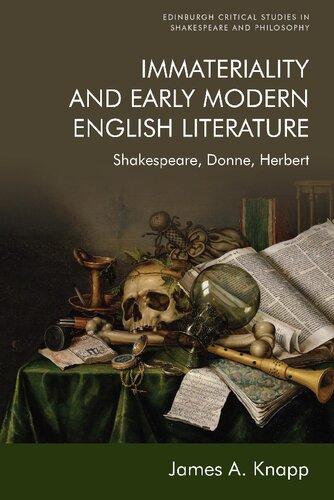

Most ebook files are in PDF format, so you can easily read them using various software such as Foxit Reader or directly on the Google Chrome browser.
Some ebook files are released by publishers in other formats such as .awz, .mobi, .epub, .fb2, etc. You may need to install specific software to read these formats on mobile/PC, such as Calibre.
Please read the tutorial at this link: https://ebookbell.com/faq
We offer FREE conversion to the popular formats you request; however, this may take some time. Therefore, right after payment, please email us, and we will try to provide the service as quickly as possible.
For some exceptional file formats or broken links (if any), please refrain from opening any disputes. Instead, email us first, and we will try to assist within a maximum of 6 hours.
EbookBell Team

4.3
28 reviewsExamines literary engagement with immateriality since the ‘material turn’ in early modern studies
Immateriality and Early Modern English Literatureexplores how early modern writers responded to rapidly shifting ideas about the interrelation of their natural and spiritual worlds. It provides six case studies of works by Shakespeare, Donne and Herbert, offering new readings of important literary texts of the English Renaissance alongside detailed chapters outlining attitudes towards immateriality in works of natural philosophy, medicine and theology. Building on the importance of addressing material culture in order to understand early modern literature, Knapp demonstrates how the literary imagination was shaped by changing attitudes toward the immaterial realm.